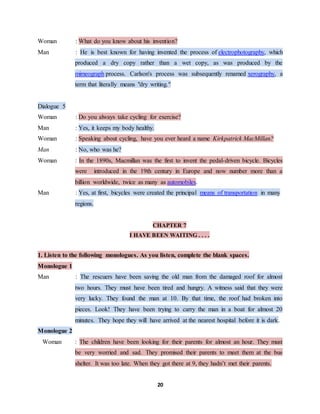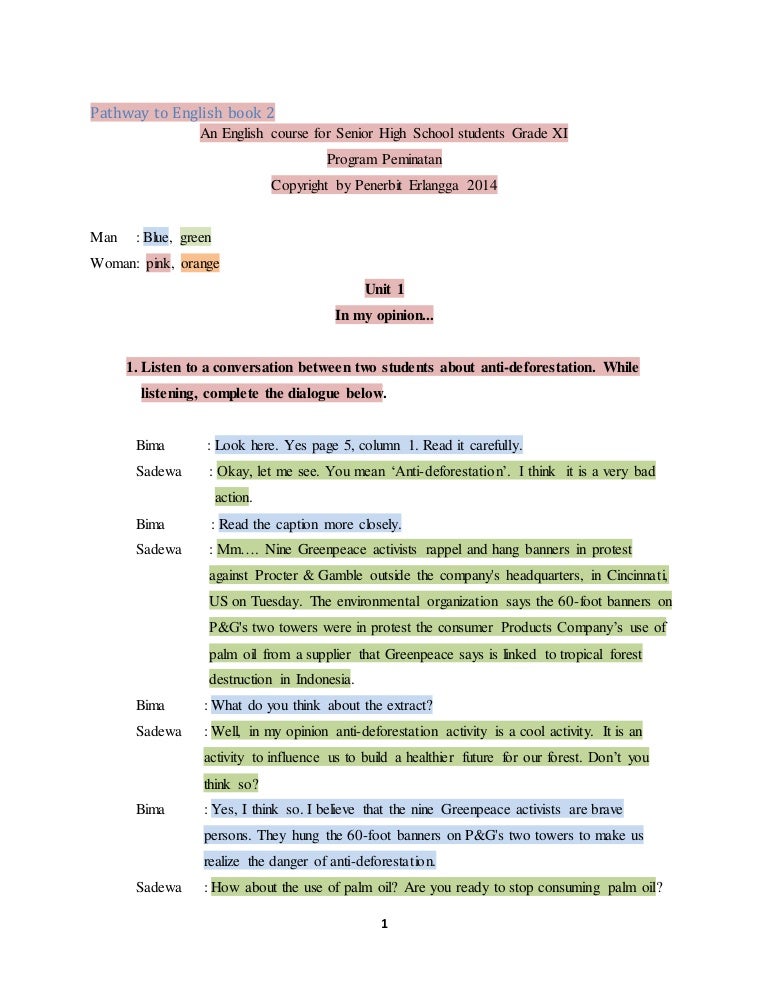At the End of the Listening Process You ______________.
Recall and remembering b. The listening process involves four stages.
Make an effort to attend.

. The process we use to make sense out of what we hear is the definition of _____. At the end of the listening process you _____. Basically an effective listener must hear and identify the speech sounds directed toward them understand the message of those sounds critically evaluate or assess that message remember whats been said and respond either verbally or nonverbally to.
If the message has been analyzed interpreted and evaluated correctly the feedback will be appropriate. Choose a sound to focus on b. Listening for pleasure or enjoyment is called _____ listening.
For example you are giving positive feedback to your instructor if at the end of class you stay behind to finish a sentence in your notes or approach. For example you are giving positive feedback to your instructor if at the end of the class you stay behind to finish a sentence in your notes or. The whole listening involves.
Updated 9262019 45128 PM. Choose a sound to focus on b. At the end of the listening process you ______________.
Listening As Joseph sat in History class he was aware that the teacher was talking but instead of paying attention he doodled in his notebook. Attending is the process of accurately identifying and interpreting particular sounds we hear as words. Choose a sound to focus on b.
This may be in the form of a reply applause or a gesture like a nod. At the end of the listening process you provide feedback. Make an effort for recall c.
Immediately before you provide feedback during the listening process you must _____. We try to remember and store the words for us to further process it. Responding sometimes referred to as feedbackis the fifth and final stage of the listening process.
The responding or feedback stage of listening happens when an audience gives verbal or nonverbal feedback about the speaker or message. After you have chosen a sound to focus on you must _____. We pay attention and hear the words of the person who is speaking.
At the end of the listening process we assign meaning and provide feedback. Amid the reacting responding or feedback stage audience members can give speakers two kinds of feedback intended to enable a speaker to know whether an. At the end of listening be it a conversation or lecture you should be able to provide feedback.
Make an effort for recall c. Make an effort for recall c. Almost anything you do at this stage can be interpreted as feedback.
5 steps The physiological process of decoding sounds is the definition of _____. The whole listening involves. At the end of the listening process we assign meaning and provide feedback.
At the end of the listening process you provide feedback. It is always helpful to the speaker to indicate if you are understanding the context of what they are saying. Make an effort to remember what has been said.
Avanturin 10 1 year ago. Listening is more than hearing. Make an effort for recall c.
It involves the process of interpretation and inference. Almost anything you do at this stage can be interpreted as feedback. Respondingsometimes referred to as feedbackis the fifth and final stage of the listening process.
There are _____ in the listening process. Listening is a passive process while critical thinking is an active process. Listening is an engaged effort.
At the end of the listening process you _____. Its the stage at which you indicate your involvement. After you have chosen a sound to focus on you must _____.
Listening is extremely important for the communication process. At the end of the listening process you _____. Its the stage at which you indicate your involvement.
We try to remember and store the words for us to further process it. Receiving understanding evaluating and responding. Updated 572016 60501 AM.
Listening happens without conscious effort. Make an effort for recall c. At this stage you complete the process of listening by providing feedback to the speaker.
If you are listening mainly to understand the speakers message you are engaging in. Which barrier to effective listening involves neglecting listening because of pressing deadlines. Good listening skills are the foundation of effective human relations.
The importance of your feedback is that it is the way the speaker knows you sensed heard the message understood interpreted and evaluated it in other words that you have. At the end of the listening process you _____. Choose a sound to focus on b.
Provide feedback _____ and _____ are important steps in the listening process. Many of the problems we experience with people are primarily attributable to ineffective listening or lack of listening. The responding or feedback stage of listening happens when an audience gives verbal or nonverbal feedback about the speaker or message.
At the end of the listening process you provide feedback. At the end of the listening process you _____. The sounds we hear have no meaning until we give them their meaning in context.
The clearer the sound the easier the listening process becomes. Choose a sound to focus on b. We pay attention and hear the words of the person who is speaking.
Search for an answer or ask Weegy. Paired with hearing attending is the other half of the receiving stage in the listening process.

03 Listening Script Pathway Grade Xi

Stages Of Listening Spch 1311 Introduction To Speech Communication

03 Listening Script Pathway Grade Xi

03 Listening Script Pathway Grade Xi
5 5 Stages Of Listening Introduction To Public Communication 2ed

Maybe I M A Different Breed Maybe I M Not Listening Indie Rock Logo Logos

03 Listening Script Pathway Grade Xi

Quiz Worksheet The Four Stages Of The Listening Process Study Com


No comments for "At the End of the Listening Process You ______________."
Post a Comment